Law & Politics
In a Trademark Win for MoMA, the New York Tea Shop MoMaCha Is Changing Its Name
The Lower East Side shop MoMaCha is now MAMACHA.
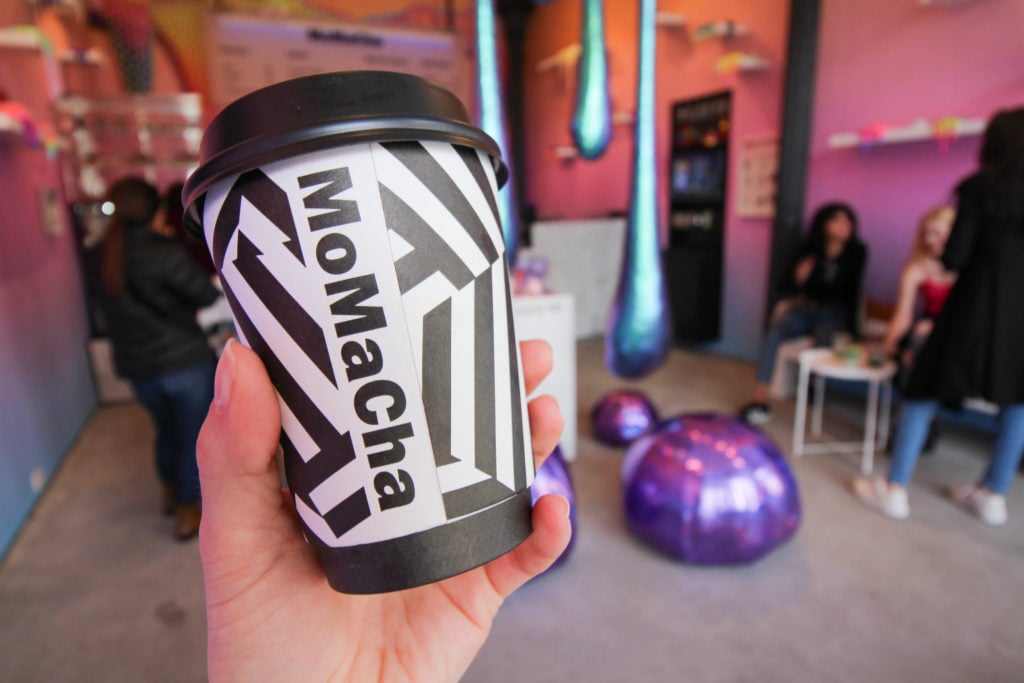
The Lower East Side shop MoMaCha is now MAMACHA.

Sarah Cascone

New York’s Museum of Modern Art is pushing ahead with its lawsuit against a Lower East Side tea shop and art gallery called Momacha, which it accuses of infringing on the museum’s trademark name and logo. On September 28, Louis L. Stanton, a US district judge for the Southern District of New York, issued a preliminary injunction barring Momacha, which opened in April, from continuing to use its name, logo, and the momacha.com URL until the legal proceedings are complete.
“Momacha is still reviewing the order and weighing our options. We are mindful that this is only a preliminary order. We respect the court’s decision, but respectfully disagree that Momacha and its products infringe on any of MoMA’s intellectual property,” said Momacha’s lawyer, Christopher B. Spuches of Agentis PLLC, in an email to artnet News. “We are confident that the court will ultimately rule in our favor.”
MoMA argued that the store’s name referenced MoMA and cha, a word for tea, while MoMaCha claimed the name was short for “more macha.” Momacha also claimed that the name MoMA was not famous enough to be recognized by the general public. The shop also pointed to the similar names and logos of other museums, including the San Francisco Museum of Modern Art (SFMOMA), and said that many businesses use similar black-and-white lettering.
Momacha ultimately changed its logo to a different stencil-like font and began printing its name on three separate lines—”Mo,” “Ma,” and “Cha” rather than “MoMa” and “Cha.” It also added notes on its website that it had no affiliation with the museum. The preliminary injunction, however, noted that MoMaCha was still using the old logo on its cups and social media.
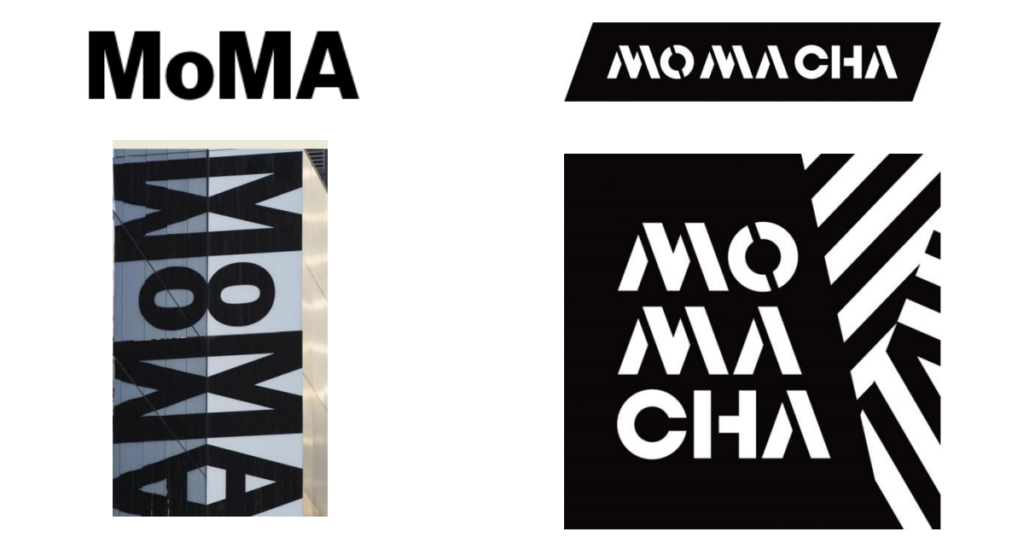
The MoMA sign, left, and the new Momacha logo, adjusted after MoMA’s initial complaint. Image courtesy of Momacha.
The judge sided with MoMA on nearly every point, noting that the museum has referred to itself as MoMA for almost 50 years, and that it developed its current logo, in a custom “MoMA Gothic” font, in 2003. Widely advertised and with significant press coverage, the MoMA logo is sufficiently famous and distinctive, and is descriptive of the institution’s status as a museum, the judge found. The tea shop, meanwhile, used cups with a vertical logo, an orientation that he felt recalled the MoMA banner.
“Both the museum and MOMACHA display modern artwork and offer cafe and beverage services in an art gallery setting. They also both sell items in relation to the art they display,” the judge added. Because both organizations are in New York, it would be reasonable for people to assume they are related, he said.
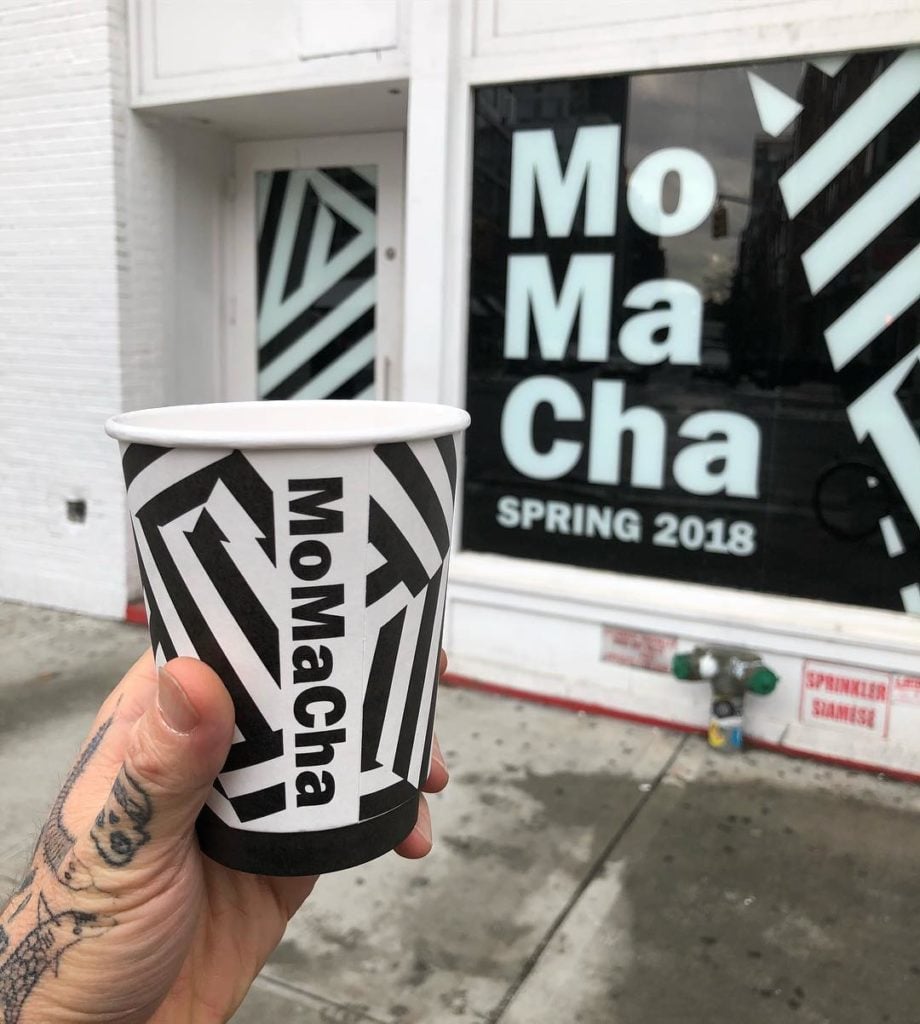
The old Momacha logo. Photo courtesy of Momacha.
The judge also cited several examples of consumer confusion, including an email inquiring as to whether the similar logos meant the two businesses were affiliated. A social media post taken at Momacha was accompanied by the caption “When a museum makes Machas.” Most damning for the shop was an Instagram comment from someone excited to try Momacha’s latte with marijuana leaf foam art and CBD oil, a cannabis compound, next time they visited the museum.
Momacha had argued that it was all but impossible for customers to mix up a tiny cafe with a massive museums, but MoMA’s operations also include the MoMA Design Store, making it conceivable that Momacha could also be a satellite location.
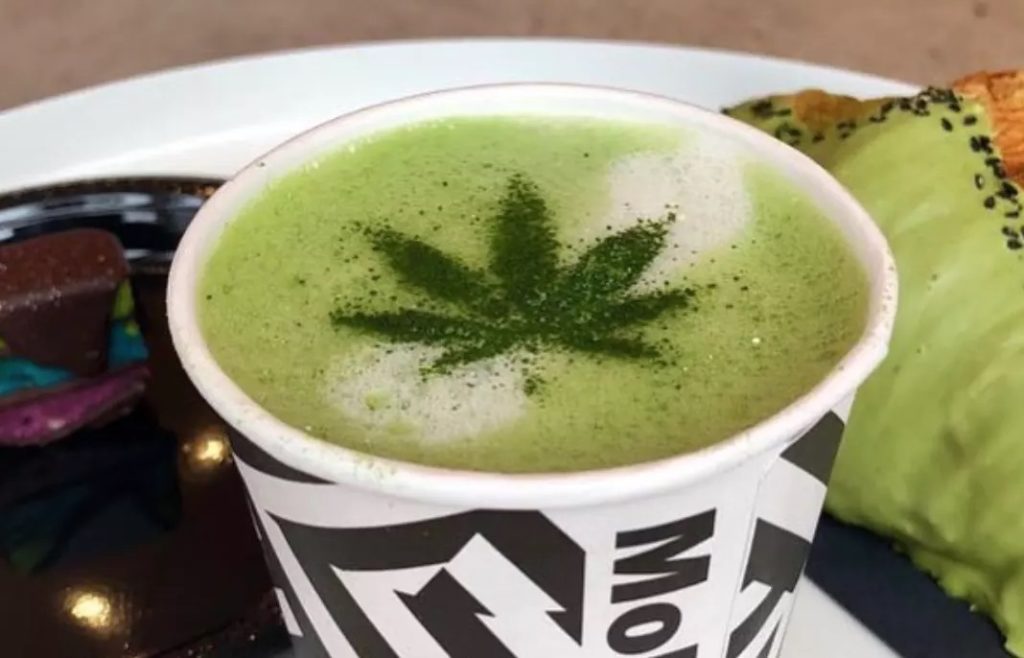
Momacha’s CBD-infused latte. Photo courtesy of Momacha.
“The close proximity of the parties’ goods and services is likely to result in the belief that MOMACHA is connected with the museum,” the judge concluded.
“It is more likely than not that MOMACHA intentionally copied the Museum’s mark in bad faith when it adopted its old logo,” wrote Stanton. “It may later be rebutted, but on the present record it appears that MOMACHA’s similarity to the museum’s mark was not accidental, but purposive.”
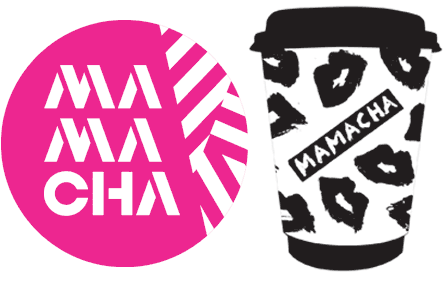
MoMaCha has renamed itself MAMACHA and debuted a new logo after MoMA was granted a preliminary injunction in its trademark infringement case. Image courtesy of MAMACHA.
In granting the preliminary injunction, the judge found that MoMA “will suffer irreparable harm” if the tea shop continues doing business under its current name and logo. The museum “is likely to succeed on the merits of its trademark infringement and unfair competition claims,” Stanton opined.
In response, Momacha has once again changed its logo and rechristened itself MAMACHA. Its new website is mamacha.nyc.
“We are pleased with the court’s thoughtful and well-reasoned decision,” Sabrina Larson of Morrison & Foerster, one of MoMA’s lawyers, wrote in an email to artnet News. “The court recognizes the strength of the MoMA mark and the need to stop confusion in the marketplace based on the relevant factors. Such confusion has already occurred and is likely to harm the Museum’s excellent reputation, as the court took into account.”
UPDATE, OCTOBER 3, 2018: The New York Times reports that Momacha owner Eric Cahan has received another cease and desist letter from MoMA’s legal team regarding the new name. “Changing the ‘O’ in MOMACHA to an ‘A’ merely indicates your clients’ continued contempt for MoMA’s trademark rights,” the letter insisted. “Your clients’ decision to change to a mark of such an infringing nature will be done at their peril.”